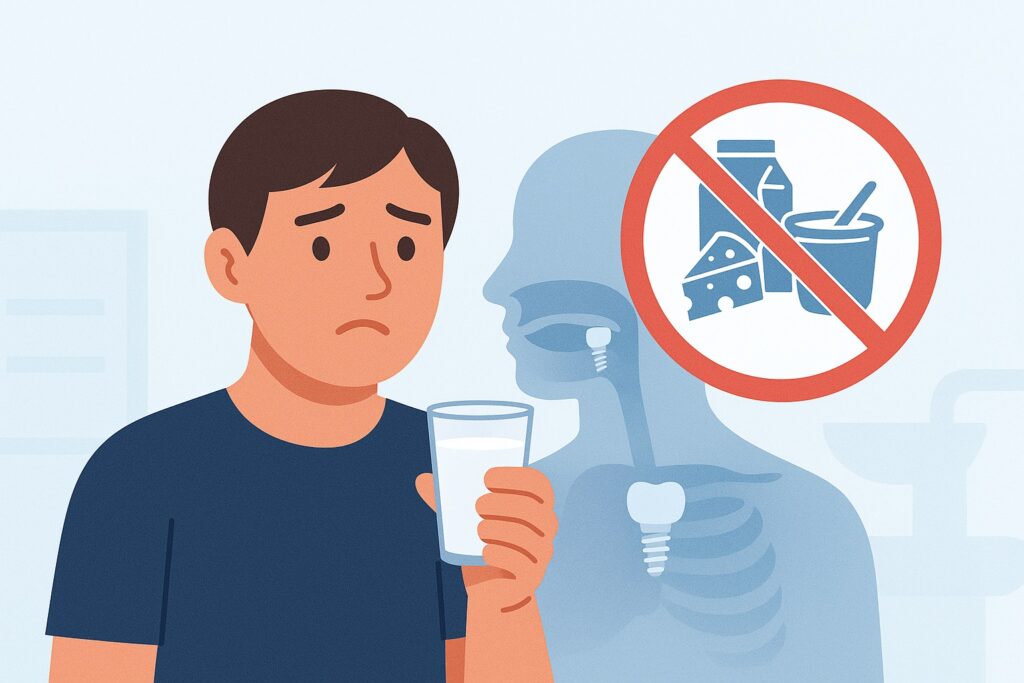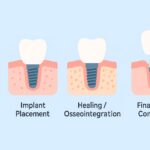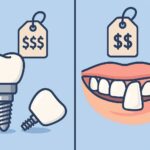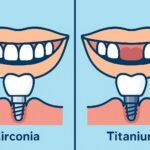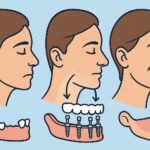Dental implants are a reliable, long-term solution for replacing missing teeth, but they require proper aftercare to ensure successful healing. One commonly overlooked part of recovery is diet—especially the advice to avoid dairy shortly after the procedure. While dairy products are usually seen as nutritious and beneficial, they can present specific risks during the critical healing phase of a dental implant. Understanding why dentists recommend cutting out dairy temporarily can help prevent complications and promote better outcomes after surgery.
Why Dietary Restrictions Matter After Dental Implants
After a dental implant procedure, the body begins a complex healing process. The implant site needs time to stabilize, allow the surrounding bone to integrate with the titanium post (osseointegration), and avoid infection or disruption. During this period, dietary choices play a direct role in either supporting or hindering recovery.
Certain foods and drinks can irritate the surgical site, introduce bacteria, or slow tissue healing. Hard, crunchy, spicy, or acidic items are usually avoided for their potential to damage the area or cause pain. Likewise, specific food groups—like dairy—are restricted because of how they interact with healing tissues and medications. Ignoring these dietary recommendations can increase the risk of inflammation, infection, delayed healing, or even implant failure.
The Reason Behind Avoiding Dairy After Dental Implants
Despite its nutritional benefits, dairy can pose several risks when consumed immediately after a dental implant procedure. Dentists often advise patients to avoid dairy in the first few days of recovery due to the following reasons:
1. Bacterial Contamination in Unpasteurized Dairy
Some dairy products, especially unpasteurized milk and cheese, may contain bacteria like Listeria or Salmonella. While these may not affect healthy individuals severely, they can introduce infection to a vulnerable surgical site. Even pasteurized dairy can carry minor bacterial content that isn’t ideal for open wounds in the mouth.
2. Dairy May Interfere with Oral Antibiotics
Patients are often prescribed antibiotics after an implant to prevent infection. Calcium in dairy can bind to certain antibiotics (especially tetracycline-class drugs), reducing their effectiveness. This can compromise healing by limiting the antibiotic’s ability to prevent or treat bacterial infection.
3. Disruption of Oral pH Balance
Dairy can alter the pH level in the mouth, sometimes leading to a more acidic environment. This imbalance can interfere with clot formation or tissue regeneration, both critical in the early stages of healing after implant placement.
4. Mucus Production and Discomfort
Milk products tend to increase mucus production in some individuals, which may lead to a feeling of throat congestion or irritation. This can cause discomfort, especially during the first few days when patients are already dealing with post-operative swelling or sensitivity.
Collectively, these factors make dairy a potentially problematic food group during the initial recovery period after a dental implant.
How Long Should You Avoid Dairy After a Dental Implant?
The duration for avoiding dairy can vary depending on the complexity of the implant procedure and your dentist’s specific recommendations. In general, most oral surgeons advise avoiding dairy for at least 48 to 72 hours after surgery. This initial period is when the surgical site is most vulnerable to infection, inflammation, and interference with medications.
For patients who are at higher risk of complications—such as smokers, diabetics, or those undergoing multiple implants—the restriction may extend up to a full week or until soft tissues show signs of stable healing. Dentists may adjust the timeline based on:
- Whether bone grafting was involved
- The presence of stitches or sutures
- How well the patient follows post-op care
- The individual’s immune response
Always follow your dentist or oral surgeon’s guidelines rather than relying on generalized timelines, as each case differs slightly in healing speed and risk factors.
Safe Foods to Eat Instead During Recovery
While avoiding dairy might seem restrictive, there are plenty of safe and healing-friendly foods that can support recovery after a dental implant. The key is to choose soft, non-acidic, and low-sugar options that won’t irritate the surgical site or interfere with medications.
1. Soft Cooked Vegetables
Steamed or boiled carrots, zucchini, squash, and spinach are easy to chew and rich in nutrients that support tissue repair.
2. Mashed Potatoes and Sweet Potatoes
These provide energy and are soft enough to eat without disturbing the implant site.
3. Smoothies (Non-Dairy Based)
Use plant-based milk alternatives like almond, oat, or soy milk. Add bananas, berries, or avocado for a nutrient-dense, soft meal.
4. Scrambled or Soft-Boiled Eggs
Eggs are an excellent source of protein and are gentle on healing tissue.
5. Oatmeal or Cream of Wheat
Warm cereals are filling, easy to swallow, and can be enriched with soft fruits or pureed vegetables.
6. Bone Broth and Soups
Warm (not hot) broths and pureed soups help keep you hydrated while supplying essential minerals.
Avoid using straws with these foods and drinks, as suction can disrupt the blood clot at the implant site.
When You Can Reintroduce Dairy Products Safely
Dairy can typically be reintroduced once the initial healing phase has passed—usually after 3 to 7 days, depending on how your mouth responds to surgery. Your dentist or oral surgeon may give you the green light during your first follow-up visit if there are no signs of infection, swelling, or irritation.
Before fully resuming dairy consumption:
- Start slowly with pasteurized, low-fat products like yogurt or soft cheese.
- Monitor your body’s response—if you feel discomfort, mucus buildup, or see signs of irritation, wait a few more days.
- Avoid hard cheeses or very cold dairy items like ice cream in the early reintroduction phase, as these may still be too harsh on sensitive tissue.
If you’re taking any antibiotics, check with your dentist or pharmacist to ensure dairy won’t affect the medication’s absorption. For most patients, by the end of the first or second week, dairy can safely become part of the regular diet again.
Conclusion
Avoiding dairy after a dental implant procedure may seem unnecessary at first, but it plays a significant role in reducing the risk of infection, supporting medication effectiveness, and ensuring a stable healing environment. Even though dairy is usually part of a healthy diet, it can interfere with antibiotics, alter oral pH, and introduce discomfort during this sensitive phase.
By following your dentist’s dietary instructions and choosing safe, soft alternatives during recovery, you protect your investment in a long-lasting, functional implant. Once your mouth has healed sufficiently—usually within a week—you can begin reintroducing dairy without compromising your results.
